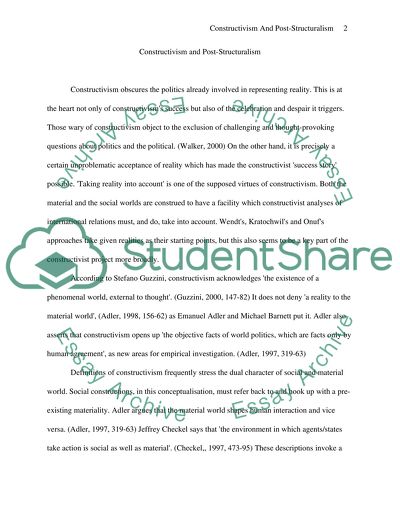Cite this document
(“Constructivism and Post-Structuralism Essay Example | Topics and Well Written Essays - 3000 words”, n.d.)
Constructivism and Post-Structuralism Essay Example | Topics and Well Written Essays - 3000 words. Retrieved from https://studentshare.org/philosophy/1532427-constructivism-and-post-structuralism
Constructivism and Post-Structuralism Essay Example | Topics and Well Written Essays - 3000 words. Retrieved from https://studentshare.org/philosophy/1532427-constructivism-and-post-structuralism
(Constructivism and Post-Structuralism Essay Example | Topics and Well Written Essays - 3000 Words)
Constructivism and Post-Structuralism Essay Example | Topics and Well Written Essays - 3000 Words. https://studentshare.org/philosophy/1532427-constructivism-and-post-structuralism.
Constructivism and Post-Structuralism Essay Example | Topics and Well Written Essays - 3000 Words. https://studentshare.org/philosophy/1532427-constructivism-and-post-structuralism.
“Constructivism and Post-Structuralism Essay Example | Topics and Well Written Essays - 3000 Words”, n.d. https://studentshare.org/philosophy/1532427-constructivism-and-post-structuralism.


